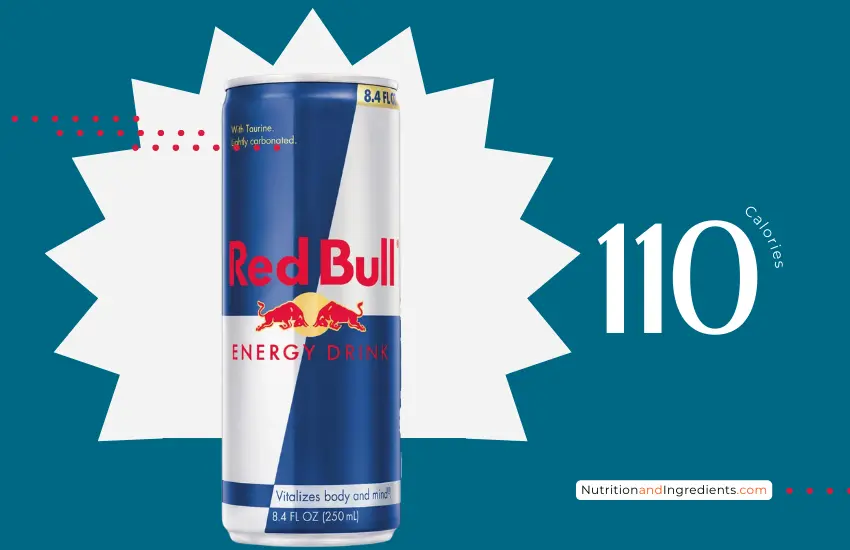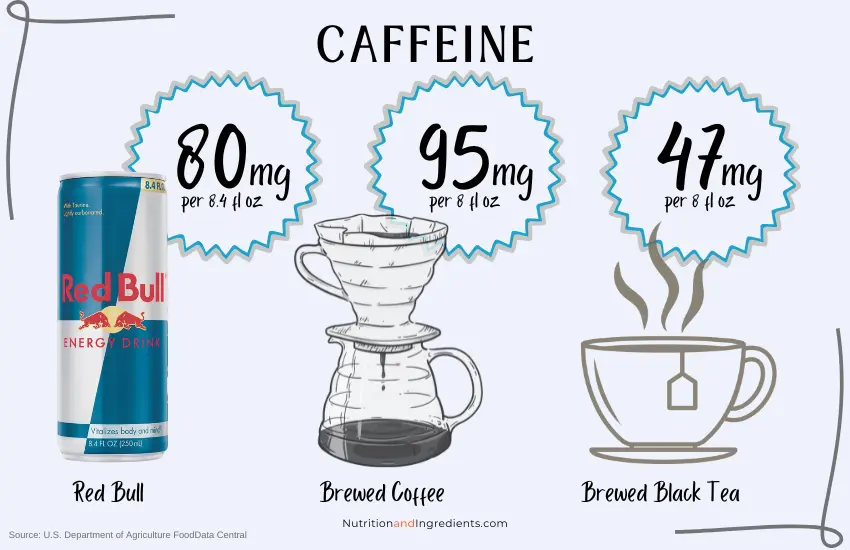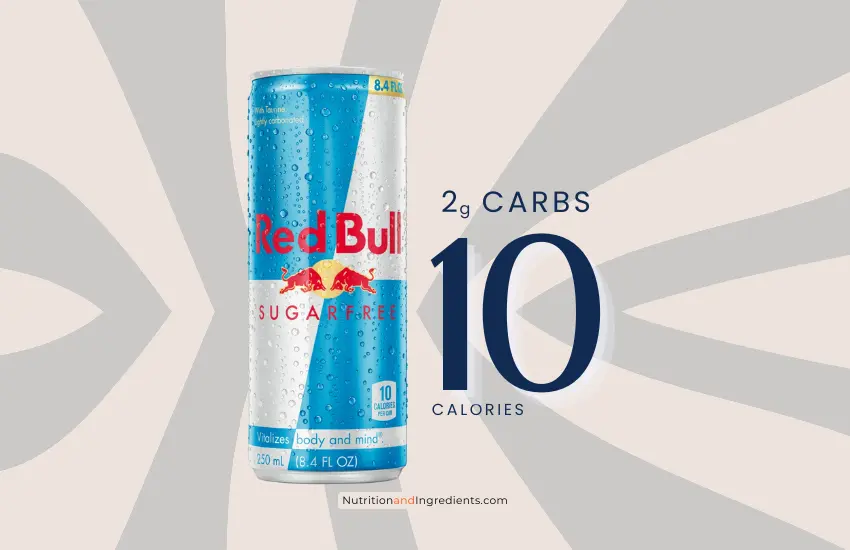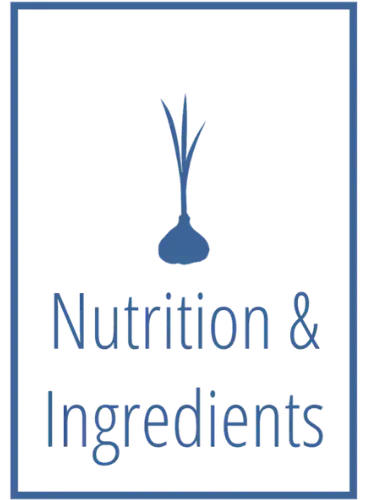Red Bull Energy Drink

Red Bull was founded in 1984 by Austrian Dietrich Mateschitz. The company is a large sponsor of athletes and past and present sporting events such as the Red Bull BC One World dancing competition, Red Bull Solo Q eSports competition, and Formula 1 Racing, among many others.
Red Bull Energy Drink contains caffeine, Vitamin B, sugars, Taurine, an amino acid, and water.
The 80mg of caffeine in one can (8.4 fl. oz.) of Red Bull is about the same amount of caffeine in a single cup of home brewed coffee.
Other varieties of the energy drink include Sugarfree, Zero sugar free, and flavored versions such as Strawberry Apricot and Fig Apple.
As an information company, we provide unbiased food reports based on data analysis. If you decide this is a good product and make a purchase using links on this page, we may earn a commission (at no additional cost to you).
Red Bull Nutritional Information
Red Bull is available in various sizes, including 8.4 ounce, 12 ounce, 16 ounce, and 20 ounce cans. Nutrition facts presented in this guide are based on a single 8.4 fluid ounce can.
Serving size: 8.4 fl oz
% DAILY VALUE
Use %DV to determine if the level of nutrients in a food is low (5% or less) or high (20% or more).
|
%DV |
Level | |
|---|---|---|
|
Saturated Fat |
0% |
LOW |
|
Sodium |
4% |
LOW |
|
Added Sugars |
53% |
HIGH |
%DV based on 2,000 calories
Calories
One 8.4 ounce can of Red Bull Energy Drink contains 110 calories.
All of the calories are derived from carbohydrates (and nearly all carbs are added sugars).
There is zero fat and zero protein in a red bull energy drink.
Red Bull
% calories from fat, carbs and proteinThe summary above of calories by nutrient in an 8oz can of Red Bull is a rounded estimate based on the nutrition facts provided by Red Bull.

Sugars
As mentioned above, carbohydrates deliver 110 calories in a can of Red Bull. Of the 29 grams of carbs in each serving, there are 26 grams of sugars.
All sugars are Added Sugars (vs natural sugars).
Guidelines set by the FDA recommend that individuals consume fewer than 10% of their total daily calories from added sugars.
The 26 grams added sugars is more than half of the recommended limit of added sugars for an entire day (based on a 2,000 calorie diet).
Review Beverage Reports
Caffeine
A single serving of Red Bull contains 80 milligrams of caffeine. For comparison, an 8oz cup of home-brewed coffee has an average of about 95mg of caffeine.

Nutrition Facts
Amount per 1 Can (8.4 fl oz)
Red indicates %DV is high.
|
Calories |
110 |
|
%DV | ||
|
Total Fat |
0g |
0% |
|
Saturated Fat |
0g |
0% |
|
Trans Fat |
0g | |
|
Cholesterol |
0mg |
0% |
|
Sodium |
105mg |
4% |
|
Carbohydrates |
29g |
10% |
|
Dietary Fiber |
0g |
0% |
|
Total Sugars |
26g | |
|
Added Sugars |
26g |
53% |
|
Protein |
0g |
%DV based on a 2,000 calorie diet. Calorie needs vary and your %DV may be higher or lower. Provided for informational purposes only. Consult with your physician for dietary or healthcare advice.
Here is the list of ingredients in a Red Bull energy drink.
Ingredients |
|---|
|
Carbonated Water, Sugar, Glucose, Citric Acid, Taurine, Sodium Citrate, Caffeine, Colors, Niacinamide, Natural and Artificial Flavors, Pyridoxine HCl (Vitamin B6), Calcium Pantothenate, Vitamin B12. |
Resources

Nutrition facts, prices, and ingredients are based on available information as of the date of publication. Restaurants and food manufacturers may change recipes or formulations without notice. Check package labels and ask the product manufacturer or restaurant for the most up-to-date information. Unless otherwise stated, %DV is based on a 2,000 calorie diet. All reports and reviews published on this site are for informational purposes only. NutritionandIngredients.com does not provide healthcare advice or dietary recommendations. Always consult your licensed physician for any healthcare or dietary advice.
Nutrition facts and ingredients source: Red Bull
